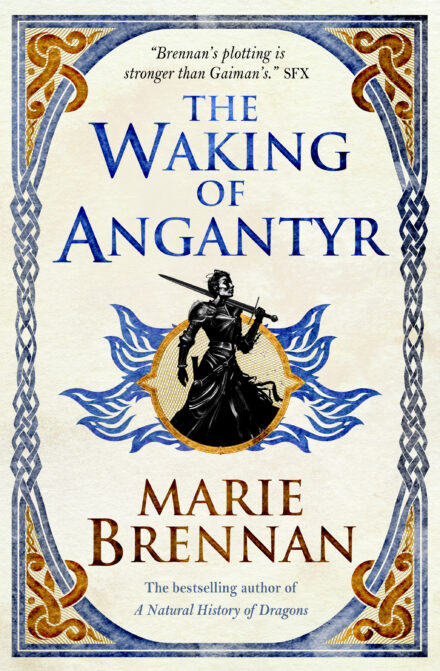Author’s Note
This novel is the bastard child of my college thesis.
While writing The Sword Makes the Man: Weapons and the Construction of Social Identity in Viking Age Scandinavia – doesn’t it sound exciting? – for my degree in archaeology and folklore, several times I came across a poem called “The Waking of Angantyr.” In it, a young woman named Hervor goes to the barrow where her father and his eleven brothers are buried and demands that Angantyr give her his famous sword, Tyrfing. Patricia Terry’s Poems of the Elder Edda, which is where I first encountered this, says in the commentary that she “wants the sword as an instrument of vengeance.” Terry is working from the text published by E.V. Gordon, in the book my Old Norse language class used; he likewise says she is “determined to avenge her father and her uncles” – and unlike Terry, he gives the name of the saga in which the poem occurs.
Well, one of its names. The work has several, such as Hervarar saga (Hervor’s Saga), Hervarar saga ok Heiðreks (The Saga of Hervor and Heiðrek), and Saga Heiðreks konungs in vitra (The Saga of King Heiðrek the Wise). That last is the title under which Christopher Tolkien – yes, that Tolkien’s son – published his translation. Because I needed it for my thesis, and also because I’m a thorough-going nerd who thought “Viking woman avenges dead father” sounded like a fantastic story, I eagerly sought out a copy.
Reader, E.V. Gordon and Patricia Terry lied to me.
Hervor doesn’t go avenge her father and uncles. She basically can’t. Hjalmar has long since died of the wounds Angantyr gave him; Örvar-Oddr (whose name, I kid you not, translates to “Arrow-Odd” or “Arrow’s Point”) has his own saga to go die in – which he accomplishes by tripping over the skull of his old horse Faxi, who was prophecied to kill him, whereupon a snake comes out of the skull and bites him. No, really.
What does Hervor do? She, uh, retires. Honestly, the assortment of various titles kind of reflects the scattershot nature of the manuscript: first it starts off with a brief explanation of the forging of Tyrfing, then moves on to Arngrim and his sons, including Angantyr, who dies with his brothers in the duel. Then Hervor shows up and you get “The Waking of Angantyr”… but after that she just spends a little time as a warrior, then settles down in the house of her foster-father Bjarmar before getting married and having a son. Literally a page and a half after arguing a ghost into handing her a cursed sword, she’s done. The saga moves on for a while to her son, Heiðrek – but he likewise gets killed, which leads to his sons (one of whom is named Angantyr; he also has a daughter named Hervor, because welcome to Old Norse literature) going to war with each other, and then there’s a list of kingly descendants (the first of which is Angantyr II’s son Heiðrek II, oh my god), the end.
This could not be permitted to stand. The poem is awesome; the saga thoroughly squanders its awesomeness. (Possibly because the poem is almost certainly older than the saga.) So naturally, being a novelist, I felt the only correct course of action was to write a novel that would deliver the blood and guts and vengeance I’d been promised.
The result hews much less closely to the source material than many of my folklore-based stories. You may have already noticed that Angantyr’s brothers in the poem became Hervor’s brothers in the novel, and book-Orvar isn’t simply bitten by a venomous snake – though I couldn’t resist saying that “Tyrfing” translates to “Serpent’s Tooth,” in acknowledgement of his canonical end. And of course all the stuff with the Blessed King and Meltharkatla and drauðr and so forth is entirely made up. But Hervor being a bondsmaid who goes around as a viking named Hervard – that part, I didn’t have to invent.
My thanks and my apologies to my professors Stephen Mitchell and Joseph Harris, who taught me about the Vikings and the Old Norse language, for all the things I learned from them and then tossed partially out the window. As a defense I will shout “the folkloric process!” and then attempt to vanish in a puff of authorial smoke.



